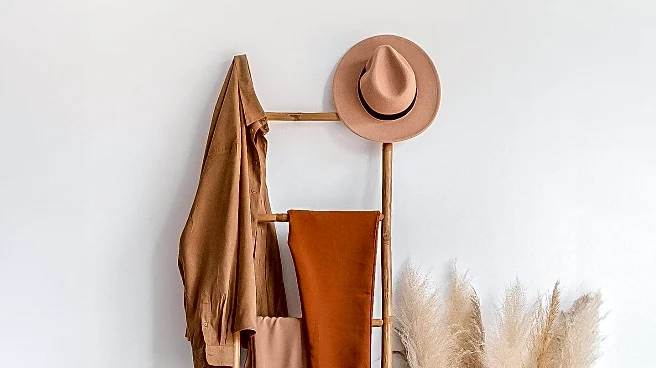What's Happening?
The Business of Fashion reports a significant increase in accessory sales, driven by Gen Z's desire to personalize minimalist wardrobes. Accessories such as colorful charms, rings, and necklace stacks
are becoming popular as they offer a way to express individual style without breaking the bank. Retailers are responding by expanding their assortments of small leather goods and styling e-commerce shoots with accessories to encourage add-on purchases. This trend is seen as a shift in consumer behavior, with accessories becoming a core element of personal style rather than just a finishing touch.
Why It's Important?
The rise in accessory sales reflects changing consumer preferences, particularly among Gen Z, who prioritize individuality and self-expression. This trend has significant implications for the fashion industry, as brands and retailers adapt to meet the demand for unique and customizable products. It also highlights the economic impact of accessories as 'little luxuries' that provide entry points into brands, potentially boosting sales and brand loyalty. The focus on accessories may lead to increased competition among brands to offer distinctive and appealing products.
What's Next?
As the trend continues, fashion brands may invest more in designing innovative accessories that cater to Gen Z's preferences. This could lead to collaborations with independent makers and a focus on sustainable and ethically produced items. Retailers might also explore new marketing strategies to highlight the versatility and appeal of accessories, potentially influencing broader fashion trends. The ongoing popularity of accessories could drive further innovation in materials and design, shaping the future of fashion.
Beyond the Headlines
The accessory boom underscores a cultural shift towards personalization and the importance of self-expression in fashion. It raises questions about the sustainability of fast fashion and the role of accessories in promoting ethical consumption. The trend may also influence broader societal attitudes towards fashion, encouraging consumers to value quality and uniqueness over mass-produced items.









